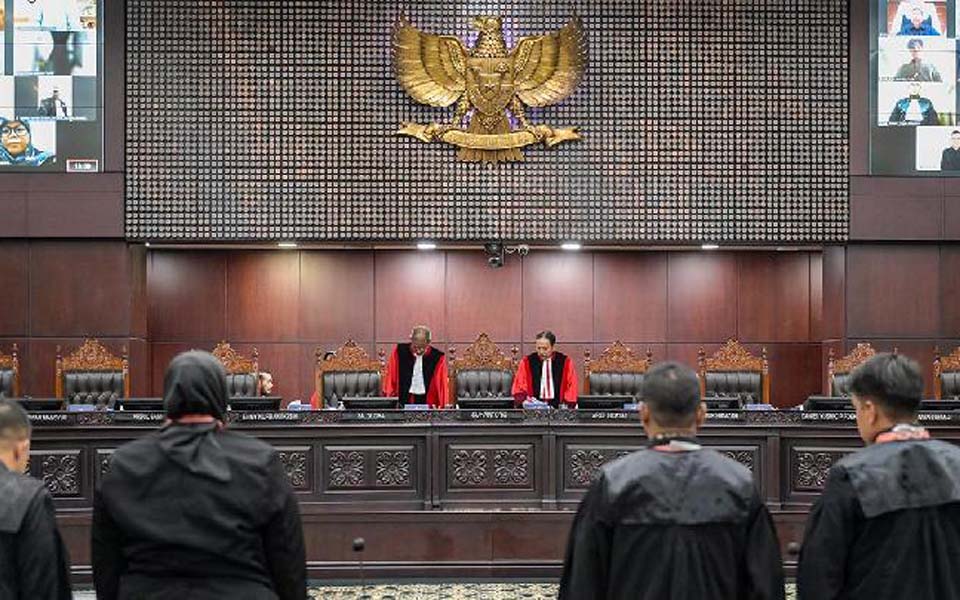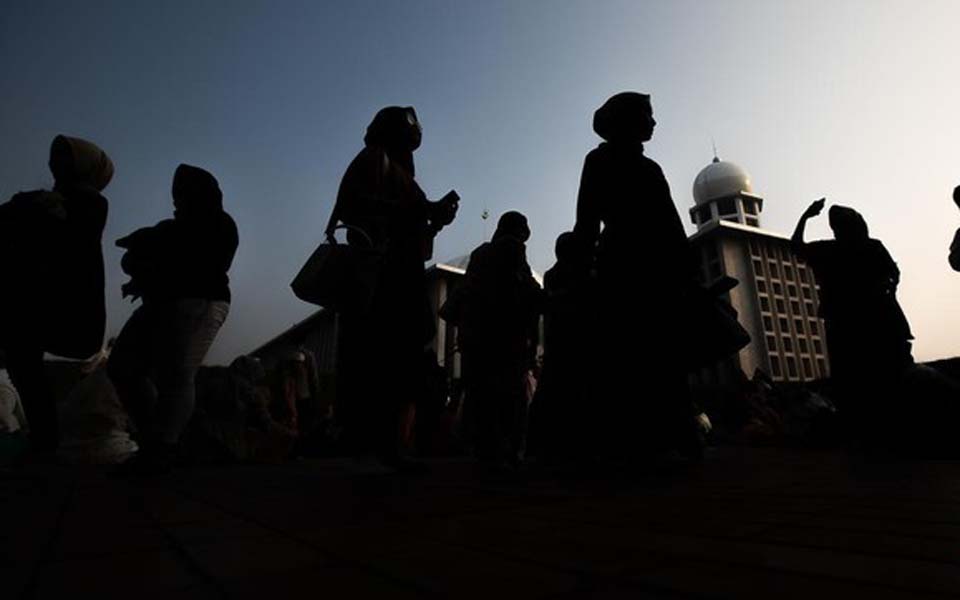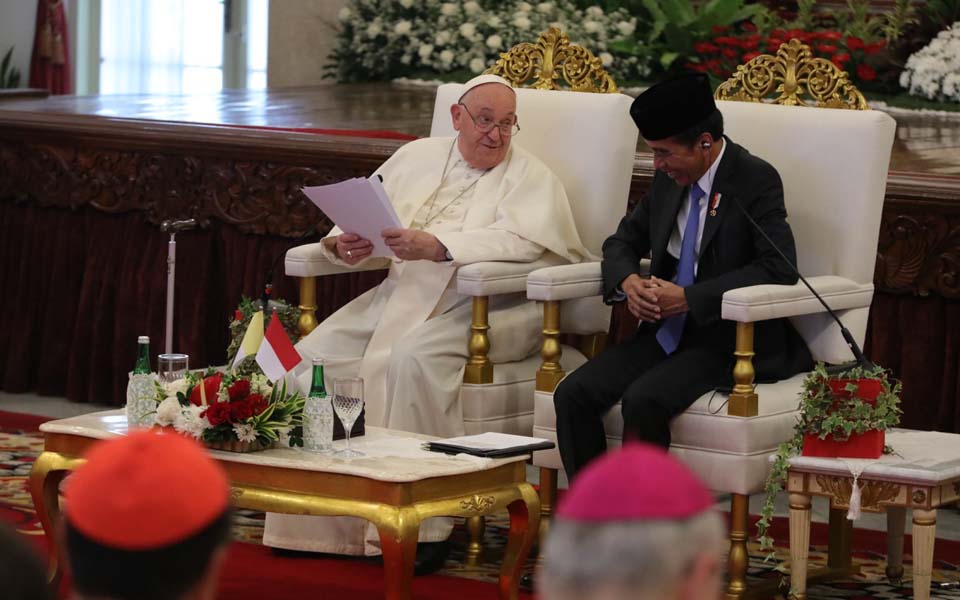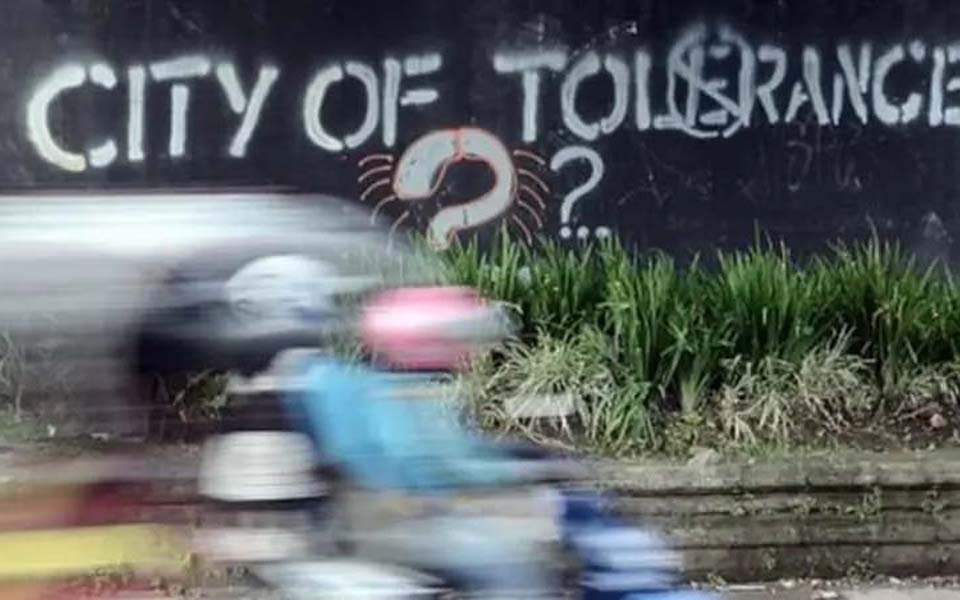Jakarta – Jakarta Governor Anies Baswedan became the target of subtle insinuations by Jakarta Archbishop Cardinal Ignatius Suharyo after he visited the Cathedral in Central Jakarta for Christmas evening mass on Tuesday December 24.
He insinuated that Baswedan “turned up all of a sudden” in the middle of the Christmas church mass.
“The Pak [Mr] Governor arrived in the middle of the mass. The Lord organised it, I’m not saying it was a coincidence. The Lord organised that he should arrive at 9.30 pm when the second mass was to begin. But he arrived at 10.14 pm”, said
Although he claimed that he could understand it and was not bothered, Suharyo also compared it with the arrival of other Muslim figures who waited until the mass was over before joining the gathering.
Baswedan’s attitude also attracted attention on social media. Not a few said that Baswedan failed to respect the customs of the Christian congregation.
Worse still, many also said that Baswedan only came to burnish his public image without bothering to understand the etiquette of other religious observations.
Wahid Foundation Executive Director Mujtaba Hamdi also suggested that Baswedan be more prudent about how he behaves, although Hamdi said he understood Baswedan’s presence at the Cathedral was related to him holding the number one position in Jakarta.
Government officials in other parts of the country have done likewise. According to Hamdi however, what happened at the Cathedra should have been able to have been anticipated beforehand.
“Pak Anies could also have sent an envoy first to check on the situation, before visiting. So that the timing of the visit would have been more appropriate and still respectful of the etiquette of the service”, said Hamdi.
Hamdi however hopes that Baswedan will sincerely maintain tolerant attitudes between religious congregations – particularly in the Jakarta area. One way would be by respecting the etiquette of services conducted by other religions.
“Carefully protect, value and respect the services of all religious congregations”, he said.
In addition to this, Hamdi’s message for state and government officials was not to use messages of tolerance on holy days just as a ceremonial obligation.
He asks that declarations of tolerance be conveyed through consistent positions and policies to protect the differences that exist in society, including differences in beliefs.
“Not making it difficult to establish a place of worship. Take action against perpetrators of violence in the name of religion. And so forth. If there is no consistency in policy making, yes well it means tolerance is just a decoration. Lipstick”, he said. “Declarations need to be applied consistently in action”, he added.
One blatant example of this is for the eighth year running the Yasmin Bogor Indonesian Christian Church (GKI) and Filadelfia Bekasi Batak Christian Protestant Church (HKBP) were forced to hold Christmas mass in front of the Presidential Palace in Jakarta. This was done as a form of protest over the chronic difficulties they have faced building or using their own places of worship.
Another incident was the ongoing prohibitions on Christian congregations in Dharmasraya and Sijunjung, West Sumatera, from holding a Christmas mass. This year they were only able to hold Christmas mass at the homes of followers after attracting national attention which forced the central government to “criticise” local youths.
Speaking in the same vein as Hamdi, Setara Institute for Democracy and Peace Executive Director Ismali Hasani hopes that the phenomena of “competing with others to appear tolerant” will be accompanied with firmness on the part of the government to protect religious congregations though consistent policy.
“We must push for more substantive changes. For example strengthening guarantees of religious freedom and avoiding favouritism of certain [religious] groups. Including putting a stop to the practice of identity politics to gain the endorsement of constituents for their leadership”, said Hasani who teaches at the Syarif Hidayatullah State Islamic University (UIN) in Jakarta.
Earlier during a press conference at the Cathedral on December 25, Suharyo, as the chairperson of the Indonesian Bishops Conference (KWI), said that respecting religious rights in accordance with respective beliefs in Indonesia is still limited to ideals.
Suharyo said that Indonesian society must hold the principles of Unity in Diversity, the state ideology of Pancasila and the 1945 Constitution in the highest regard. Because they all contain within them the social obligation to respect other people’s religious rights.
Although the problem of prohibitions has grown, Suharyo has not however become discouraged. Because there have only been one or two cases and these do not reflect the attitude of all communities in Indonesia.
“Don’t [be discouraged] just because of one or two cases which if counted only represent zero or so percent. So I tend to look at things from a positive perspective”, said Suharyo after presenting a message to all regional governments to take responsibility for issues of intolerance which emerged in their areas. (tst)
[Translated by James Balowski. The original title of the article was “Peringatan Natal dan ‘Lipstik’ Toleransi Pejabat Negara”.]















